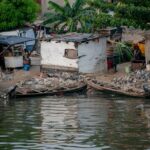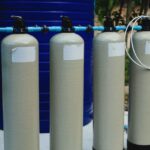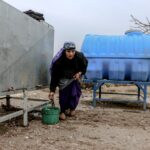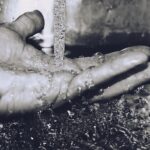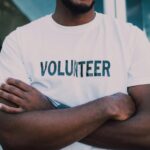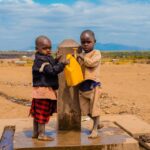Is It Safe to Drink Tap Water in Liberia?
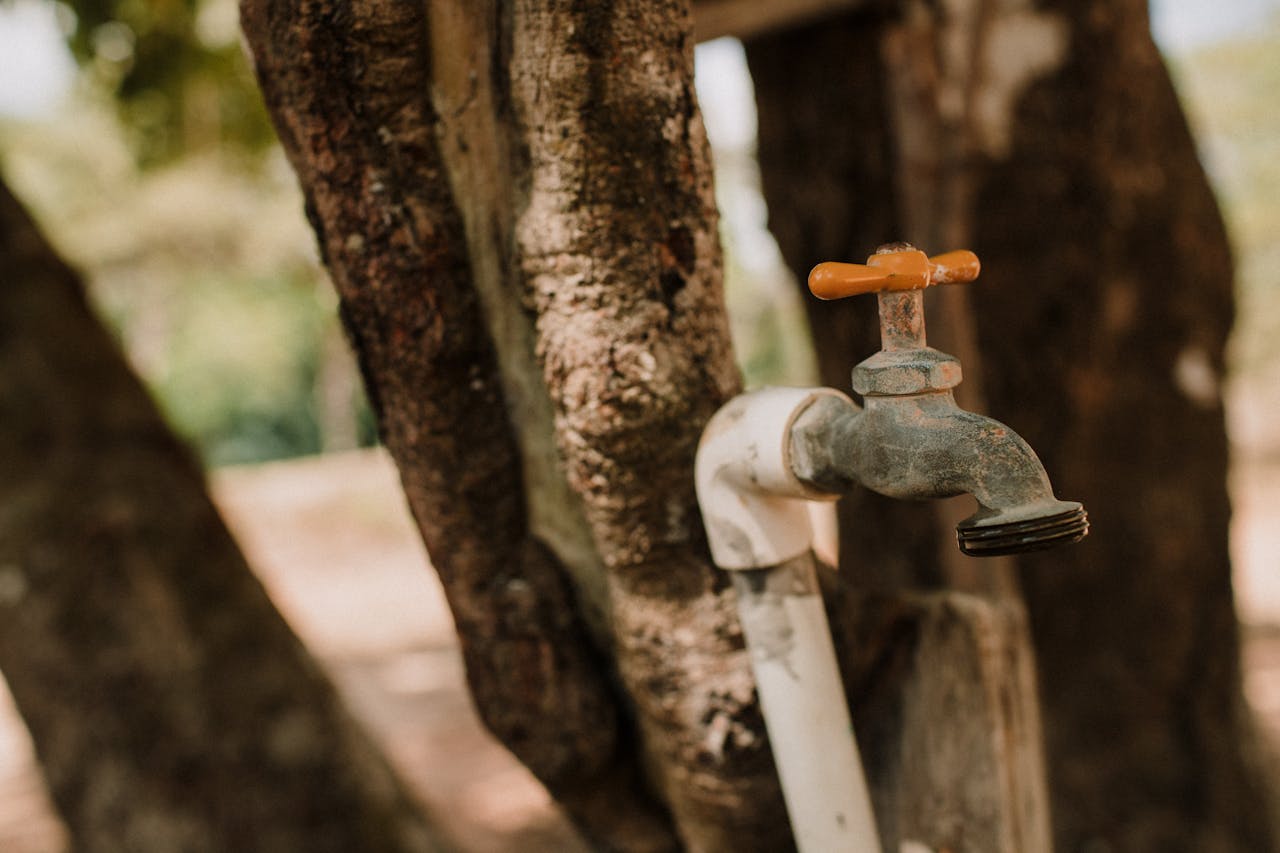
It is true that water is essential for life. No one can live without it and no one should, but in Liberia, getting safe drinking water is somewhat a herculean task. The country has abundant water resources, but close to 90% of its population has limited access to safe drinking water.
Many people rely on tap water for their daily needs, but is it safe to drink? The answer isn’t an outright yes. While efforts have been made to improve water access, issues like contamination, poor infrastructure, and inconsistent water treatment raise concerns.
Unsafe water can lead to serious health problems, including diseases like cholera and typhoid. As water experts say, “Access to clean water isn’t a luxury – it’s a necessity for health and development.” So, what’s really in Liberia’s tap water, and what can people do to ensure they drink water safely?
Sources of Tap Water in Liberia
Tap water in Liberia comes from different sources depending on where you live. In urban areas, the Liberia Water and Sewer Corporation (LWSC) provides piped water to some homes and businesses. However, not all areas have access, and even when they do, the supply isn’t always reliable.
In rural communities, many people rely on wells, boreholes, and hand pumps for water. Some also collect rainwater. While these sources can be useful, they are not always treated, meaning the water may contain dirt, bacteria, and other harmful substances. For those who don’t have access to tap water, buying bottled water or fetching water from rivers and streams becomes their only option.
Water Treatment and Quality Standards
The government has systems in place to treat tap water before it reaches homes. This includes filtering and adding chlorine to kill bacteria and other germs. However, not all tap water in Liberia goes through proper treatment. Aging pipes, leaks, and low water pressure can cause contamination, especially in areas where sewage systems are weak.
Liberia has water quality regulations, but enforcement is a challenge. In some places, tap water is tested regularly, while in others, it’s left unchecked for long periods. This inconsistency makes it difficult for people to fully trust that their tap water is always safe.
Common Contaminants in Tap Water
Even when tap water looks clean, it might still contain harmful substances. Some of the most common contaminants found in Liberia’s water supply include:
- Bacteria and viruses – These can come from human waste, making water unsafe to drink and causing diseases like cholera and dysentery.
- Chemicals – Old pipes may release lead or other metals into the water. Also, pesticides and industrial waste can seep into water sources.
- Dirt and debris – During the rainy season, heavy floods can wash dirt and waste into water systems, increasing the risk of contamination.
Health Risks of Drinking Untreated Tap Water
Drinking unsafe tap water can lead to serious health problems, especially for children, pregnant women, and the elderly. Some of the most common health issues linked to contaminated water in Liberia include:
- Diarrhea and dehydration – Waterborne diseases like cholera and dysentery can cause severe diarrhea, leading to dehydration. This is especially dangerous for young children.
- Typhoid fever – This bacterial infection spreads through contaminated water and can cause high fever, stomach pain, and weakness.
- Parasitic infections – Tiny parasites like Giardia and Cryptosporidium can be present in untreated water, causing stomach cramps and long-term digestive issues.
- Heavy metal poisoning – In some areas, old pipes may release lead or other toxic metals into the water, which can harm brain development in children and cause kidney problems in adults.
How People in Liberia Make Tap Water Safer
Since tap water safety isn’t guaranteed everywhere, people in Liberia have found different ways to make their drinking water safer:
- Boiling – One of the simplest and most effective methods. Boiling water for at least one minute kills bacteria, viruses, and parasites.
- Water filtration – Some households use water filters to remove dirt and harmful substances. Simple clay or charcoal filters can help, but advanced filters work even better.
- Chlorine treatment – Some people add chlorine drops or tablets to their water to kill germs. These are affordable and available in some pharmacies and health centers.
- Buying bottled or sachet water – Those who can afford it often buy bottled or sachet water, but this isn’t always a long-term solution due to cost and environmental concerns.
These methods help reduce the risk of illness, but they don’t solve the bigger issue of providing safe tap water for everyone.
Government and International Efforts to Improve Water Safety
Recognizing the need for clean water, the Liberian government, along with international organizations, has been working to improve water access and quality.
Some of the key efforts include:
- Upgrading water treatment plants – New projects aim to modernize old water treatment facilities, ensuring that more communities get treated water.
- Expanding water infrastructure – The Liberia Water and Sewer Corporation (LWSC) is working to provide more households with piped water, but progress is slow.
- Partnerships with NGOs and aid organizations – Groups like UNICEF, the World Bank, and Aqua Maya are supporting water projects to bring clean drinking water to local communities.
- Public awareness campaigns – Educating people on the importance of boiling and filtering water helps reduce health risks.
Comparing Tap Water Safety in Urban vs. Rural Areas
Tap water safety in Liberia depends a lot on where you live:
- Urban areas (like Monrovia) – Some neighborhoods have piped water, but supply is unreliable. Many people still boil or filter their tap water before drinking it.
- Rural areas – Most communities lack piped water, so people rely on wells, streams, and hand pumps. These sources are often contaminated, increasing the risk of diseases.
- Slum areas – In crowded settlements, access to clean water is very limited. People often share water sources, making contamination a big problem.
The Cost of Safe Drinking Water in Liberia
For many people in Liberia, accessing safe drinking water is not just about availability – it’s also about affordability. While tap water should ideally be the cheapest option, its safety concerns often force people to spend extra money on alternatives.
Here’s a look at the cost challenges:
- Bottled and sachet water – Many urban residents buy bottled or sachet water to ensure safety. A small sachet of water is affordable for daily use, but buying bottled water regularly can be expensive, especially for low-income families.
- Water treatment methods – Boiling water requires fuel, whether it’s charcoal, gas, or electricity. Filtering systems can be costly upfront, even if they save money in the long run. Chlorine tablets and other chemical treatments are an extra expense.
- Fetching water from safer sources – In some rural areas, people walk long distances to fetch water from cleaner wells or boreholes. The time and effort spent collecting water could be used for work or school.
- Water delivery services – In some communities, especially where there’s no piped water, private vendors sell water from tankers or wells. This can be costly and doesn’t always guarantee better quality.
The Role of Government and Organizations in Improving Tap Water Safety
Ensuring safe tap water in Liberia is not only the responsibility of individuals – it requires action from the government, local authorities, and organizations working in the water sector.
Here’s how different groups are involved:
- Government efforts – The Liberian government, through agencies like the Liberia Water and Sewer Corporation (LWSC), is responsible for providing clean tap water. However, challenges like outdated infrastructure, inconsistent funding, and limited resources slow down progress.
- International aid and NGOs – Organizations like UNICEF, the World Bank, and Aqua Maya focus on improving access to clean water, especially in rural communities. These groups help build wells, install filtration systems, and promote hygiene education.
- Community-driven initiatives – Some local communities take matters into their own hands by maintaining wells, organizing clean-up efforts, or advocating for better water services.
- Public-private partnerships – In some cases, private companies and investors partner with the government to improve water infrastructure. This can speed up progress, but also raises concerns about affordability.
While these efforts help, much more still needs to be done to make tap water in Liberia safe for everyone. Investment in water infrastructure, stronger policies, and better public awareness are key to long-term change.
Conclusion
Access to safe drinking water remains a significant challenge in Liberia. Despite being one of the world’s wettest countries with abundant water resources, close to 90% of its population has limited access to safe drinking water. This disparity reveals the need for substantial improvements in water infrastructure and services.
The health risks associated with consuming untreated or contaminated water are severe, including waterborne diseases such as cholera, typhoid, and dysentery. These illnesses disproportionately affect vulnerable populations, particularly children, contributing to high rates of diarrheal diseases and childhood malnutrition.
Efforts to address these challenges are underway. The Liberian government, in collaboration with international organizations like UNICEF and WaterAid, is working to improve access to clean water and sanitation services. Aqua Maya, also, has flung into action to help ease the safe drinking water challenge in the country. Initiatives such as the USAID funded “Improved Access to Safe Drinking Water in Liberia” activity aim to strengthen local water service providers and expand equitable and sustainable water services.
However, achieving significant progress requires continued investment in water infrastructure, enforcement of water quality regulations, and public education on safe water practices. By addressing these issues collectively, Liberia can move towards ensuring that safe tap water is accessible to all its citizens, thereby improving public health and quality of life.
Sources
1. https://www.unicef.org/liberia/water-sanitation-and-hygiene
2. https://www.researchgate.net/publication/361772564

